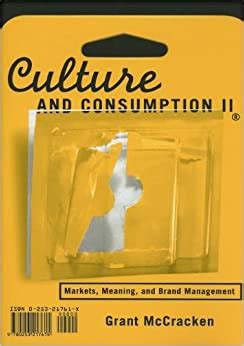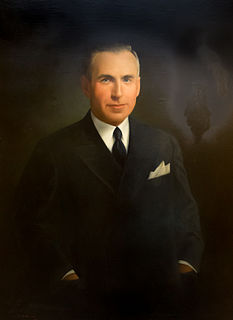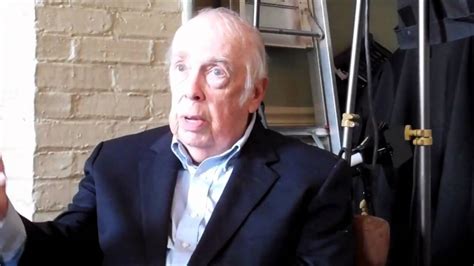A Quote by Grant David McCracken
Most change initiatives either fail or fall far short of original expectations. More often than not, resistance is cultural in nature but the real cause of lots of resistance often is that however much a team might say that it wants to change, the old assumptions are woven, invisibly, deep within the corporate culture, and from this staging ground they act invisibly to sustain the old order. Finding the assumption out and then rooting them out is a special skill. It calls for assumption hunters, I call them.
Quote Topics
Act
Assumption
Assumptions
Call
Calls
Cause
Change
Corporate
Corporate Culture
Cultural
Culture
Deep
Deep Within
Either
Expectations
Fail
Fall
Far
Finding
Ground
However
Hunters
Initiatives
Lots
Might
More
Most
Much
Nature
Often
Often Is
Old
Order
Original
Out
Real
Resistance
Rooting
Say
Short
Skill
Special
Staging
Sustain
Team
Than
Them
Then
Wants
Within
Woven
Related Quotes
When we see the need for deep change, we usually see it as something that needs to take place in someone else. In our roles of authority, such as parent, teacher, or boss, we are particularly quick to direct others to change. Such directives often fail, and we respond to the resistance by increasing our efforts. The power struggle that follows seldom results in change or brings about excellence. One of the most important insights about the need to bring about deep change in others has to do with where deep change actually starts.
Many change initiatives are poorly thought out, and rolled out prematurely. Others are genuinely good ideas but the proponents underestimate the amount of time needed to make the change. And, I agree, true change usually requires people giving something up and so resistance is pretty well guaranteed for any meaningful change.
Seeing ourselves as we want to be is a key to personal growth. To successfully bring about change in our lives we need to implement a system of change that is build upon three assumptions. First Assumption: We change our lives by changing the attitudes of our minds. Second Assumption: We become what we think about all day long. Third Assumption: Our mind is naturally goal seeking. Please remember these assumptions. Our mind is always trying to accomplish something. We have a powerful machine wanting to achieve goals. It will set the goals that we allow it to.
After meditating for some years, I began to see the patterns of my own behavior. As you quiet your mind, you begin to see the nature of your own resistance more clearly, struggles, inner dialogues, the way in which you procrastinate and develop passive resistance against life. As you cultivate the witness, things change. You don't have to change them. Things just change.
The facts of nature are what they are, but we can only view them through the spectacles of our mind. Our mind works largely by metaphor and comparison, not always (or often) by relentless logic. When we are caught in conceptual traps, the best exit is often a change in metaphor not because the new guideline will be truer to nature (for neither the old nor the new metaphor lies "out there" in the woods), but because we need a shift to more fruitful perspectives, and metaphor is often the best agent of conceptual transition.
I used to believe that you could change the culture or behavior of a company. I still believe it's possible, but it is at least a five to ten year process, if you are successful at all. More recently, I have been attracted to the ideas of the behavioralist, Edgar Schein. Schein has argued that you cannot change the culture of a company, but you can use the culture of a company to create change. It's an interesting approach to overcoming resistance. And if you can change how a company does its work, you might eventually be able to change how its people think.
In science it often happens that scientists say, 'You know that's a really good argument; my position is mistaken,' and then they would actually change their minds and you never hear that old view from them again. They really do it. It doesn't happen as often as it should, because scientists are human and change is sometimes painful. But it happens every day. I cannot recall the last time something like that happened in politics or religion.
The more I drive myself into the depth of my inside, the more things come up to my vision, visibly or invisibly... I even do not know if I am seeing them with my eye or with my mind. I just need to copy them on my canvases. But this mental process is always overwhelming. I often have hard time to deal with my emotion on this state. You could call this depression on surface? But actually, so many 're-birth' and 'reform' are going on on my thoughts, inspiration, philosophy...etc in the underwater. I believe this struggle make my art real. My art always comes from my emotion.
I don’t know why life isn’t constructed to be seamless and safe, why we make such glaring mistakes, things fall so short of our expectations, and our hearts get broken and out kids do scary things and our parents get old and don’t always remember to put pants on before they go out for a stroll. I don’t know why it’s not more like it is in the movies, why things don’t come out neatly and lessons can’t be learned when you’re in the mood for learning them, why love and grace often come in such motley packaging.


































